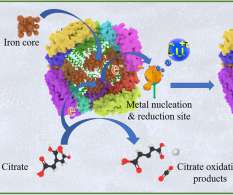New catalyst for the direct conversion of ethanol to isobutene
Green Car Congress
AUGUST 1, 2011
With increased availability and reduced cost of bio-ethanol, conversion of this particular bio-based feedstock to highly valuable fuels and chemicals has been an especially important research goal. At the same time, the zinc oxide’s influence prevented the ethanol-to-ethylene conversion by zirconium oxide.











































Let's personalize your content